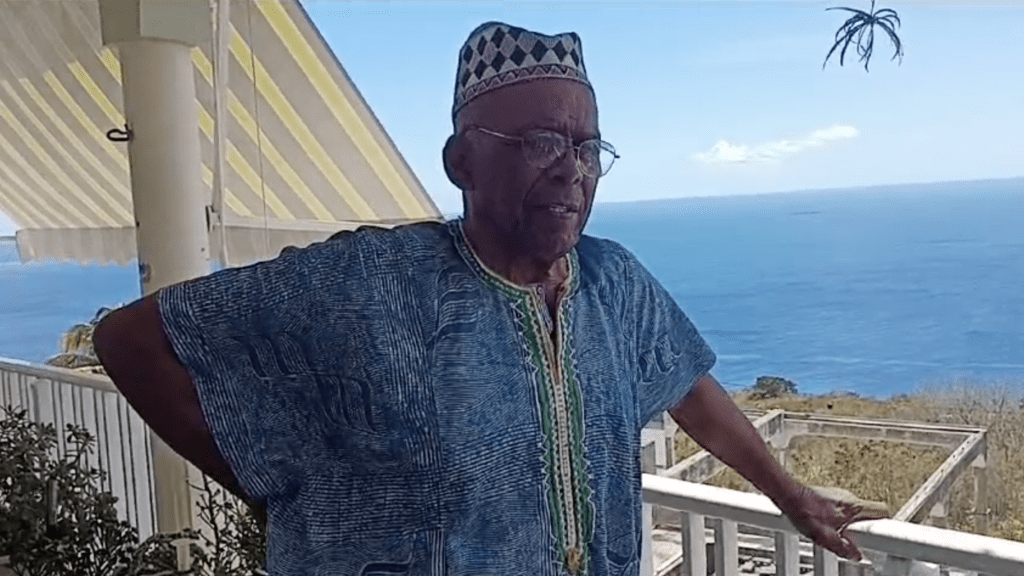Re-educating students about Black History
The Repair Campaign interviewed Franklyn Georges about his work as an activist and educator of black history.
June 24, 2024


Can you tell us a bit about yourself and your background?
My name is Franklyn Georges and I am 87. I grew up in Dominica and lived in England for a very long time where I discovered my history. It is through learning about my history and finding my ancestors who have been guiding me the entire time that I found myself. This is what gave me my drive to teach history, because growing up in the Caribbean they taught us other people’s history but not our history.
When I was in England, I started reading all sorts of books on black history which brought forward all the negative things about myself I had in my head and allowed me to start seeing all the positive things.
Throughout my career I have worked in the Trade Union, local government, and various private sector organisations in the Caribbean. I also worked with associations like the Waltham Forest, Antigua & Barbuda and Dominica Twinning Association who are now going on for 25 years.
Can you tell us some more about the inspiration behind the work you do teaching black history in schools?
When I left England and came home to Dominica, I noticed our kids were way behind. I saw an opportunity to bring a new version of education to them, which I call “re-education.”
It’s sad to say, in Dominica where I live right now, we don’t teach our history in our schools up to today, they teach someone else’s history. And when they teach you other peoples’ history, you become another person, not yourself. I would use the word identity – teaching history is important because it’s a matter of identity.
This is why I volunteer to go into schools and teach our history, to first get our children un-indoctrinated and then re-educated. Without those two, there is no way forward.
What are some of the very important pieces of the history that you think need to be taught in schools to give Dominican (and Caribbean) students, a better sense of who they are?
Most of the role models that Caribbean students see around them, they don’t know the roots of.
For example, did you know it was a black person who invented the process of blood transfusion? Also take for example the common phrase “The Real McKoy” meaning “The real thing”. Did you know this phrase is a reference to the oil-drip cup invention used in railways, invented by Elijah McKoy who was a black man?
Most black people, when they hear the word Timbuktu, they think it’s a far away, backwards place in Africa. But the first university in the world was in Timbuktu. So we need to go back and reclaim everything that’s ours because knowing our history helps us have the kind of consciousness that can elevate someone’s dignity and make you think differently.
We must try to show our children that our ancestors were not really slaves. It is important for people to know the brilliant inventions that black people have made, many of which were robbed from our ancestors because they didn’t have the rights to patent anything.
Understanding this helps our students make these connections to the positive side of their African heritage and have a more positive sense of black identity, instead of the negative indoctrination that has been put there.
What we’ve got to do today is clear our minds of all those negative things that were put to us in school and replace them with our own quotes and lessons to support our own re-education.
We need more books about black history for students and teachers alike to learn about these things. Teachers need to be educated too because many teachers don’t know the history themselves, so how can they be expected to teach it?
How do you hope this re-education will strengthen the movement for reparations?
Many people think of reparations as getting back money even though it’s not just about money.
The goal should be to un-indoctrinate and then re-educate our children. So that when we finally get what we fought for, we will spend reparations the right way.
Reparation without re-education is of no use to the black community.
And through re-education you get rid of indoctrination, which is a disease like cancer to black people.
